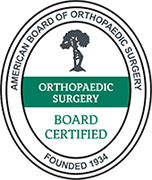What is a Cyst?
A cyst is a small irregular, non-cancerous sac-like structure filled with fluid or pus. It may be found in any part of the body including the foot. Cysts are caused due to infection, trauma, or blocked oil glands. They usually grow slowly and have a smooth surface. Cysts can be of varying sizes and appear as a bump on your skin or feel like a lump growing under the skin.
Types of Cyst on the Feet
The most common types of cysts found in the feet are:
- Ganglion cyst: These are benign growths filled with fluid that originate in the tendon sheath and capsules that surround the joints in the foot. The symptoms caused by these cysts include a burning sensation, irritation of the skin, and difficulty in walking.
- Synovial cyst: These are benign, fluid-filled masses that are completely covered by a layer of tissue and appear on the top of the foot. They are caused due to tendon or joint injuries and arthritis and may cause pain and tenderness in the foot.
- Plantar fibroma: These are benign, fibrous tissue masses present in the arch at the bottom of the foot. The symptoms caused by these cysts include pain and difficulty walking.
Indications for Cyst Removal
Surgical cyst removal may be indicated if conservative measures such as modification of activities, changing footwear, aspiration, and injection fail to resolve symptoms.
Preparation for Foot and Ankle Osteotomy
Your doctor will assess your symptoms and perform an examination. Imaging tests such as an X-ray may be ordered to confirm the location and extent of the cyst. Inform your doctor about the medicines you are taking prior to the procedure, and if you are allergic to any medicines or anesthesia. Arrange for someone to drive you home after the surgery.
Cyst Removal Procedure
- The cyst removal surgery may be performed under regional or local anesthesia.
- Your doctor will mark the incision site and will inject anesthesia to make the area around the cyst numb.
- Using a scalpel, a small incision will be made.
- Special instruments will be used to remove the fluid-filled cyst as well as the cyst capsule.
- The surgical incision may be closed with sutures.
- A bandage will be applied over the incision site.
Recovery after Cyst Removal
Cyst removal may be done as an outpatient procedure and you can return the home the same day as the surgery. Full healing of the surgical site may take between 2-8 weeks. During this time, you may be advised to use the foot lightly and refrain from activity that might irritate the area.
Risks and Complications of Cyst Removal
Cyst removal surgery is very safe, however, there is a minimal risk of complications that include:
- Sensitivity around the incision site
- Injury to surrounding tendons and tissues
- Loss of mobility










